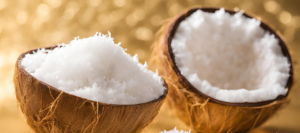Making of Indian Coconut Export Success
Meta Title: Behind the Scenes: The Making of Indian Coconut Export Success
Indian coconuts and coconut byproducts have long been revered for their versatility and health benefits. With a rich culture deeply intertwined with the coconut tree, India has become one of the leading exporters of mature coconuts and coconut byproducts worldwide. In this blog post, we will take you behind the scenes and explore the factors that contribute to the Indian coconut export success story.
The Role of Climate and Geography
India’s tropical climate and diverse geography provide ideal conditions for coconut cultivation. Coconut trees thrive in coastal regions where the sandy soil and ample sunlight create the perfect environment for growth. Kerala, Tamil Nadu, Karnataka, Andhra Pradesh, and Maharashtra are some of the major coconut-producing states that benefit from these favorable conditions.
Traditional Farming Practices
The success of Indian coconut export can be attributed in part to the traditional farming practices passed down through generations. Farmers employ age-old techniques to nurture and care for the coconut trees. These sustainable methods ensure high-quality coconuts while preserving the rich biodiversity of the surrounding ecosystem.
Expertise in Organic Farming
In recent years, there has been a growing global demand for organic coconut products. Indian farmers have recognized this trend and embraced organic farming practices. By avoiding the use of chemical fertilizers and pesticides, they produce coconut byproducts with exceptional quality and purity. This emphasis on organic farming has significantly contributed to the success of Indian coconut exports.
State-of-the-Art Processing Facilities
India boasts modern processing facilities equipped with advanced machinery and technology. From husking and deshelling to processing coconut oil and extracting coconut milk, these facilities play a crucial role in maintaining high production standards. The efficient processing techniques used ensure that the end products meet international quality standards and regulations.
Government Support and Initiatives
The Indian government has played a significant role in promoting and supporting the coconut industry. Various initiatives have been implemented to provide financial assistance, training, and infrastructure development to coconut farmers and exporters. The Coconut Development Board, a statutory body under the Ministry of Agriculture, is actively involved in facilitating the growth of the industry through research, development, and marketing support.
Strict Quality Control Measures
To maintain its reputation as a reliable exporter, India places immense importance on quality control measures. The coconuts and coconut byproducts undergo rigorous testing at different stages of production. This ensures that only the finest products reach the international market, meeting the expectations and requirements of consumers worldwide.
Sustainable Packaging and Eco-Friendly Practices
In line with global sustainability efforts, Indian coconut exporters prioritize eco-friendly packaging materials. Sustainable alternatives such as biodegradable packaging and minimal plastic usage are gaining popularity. This commitment to environmental responsibility has further boosted the reputation of Indian coconut exports.
Strong Export Network and Competitive Pricing
India has established a robust export network, connecting buyers from around the world with reliable coconut suppliers. By streamlining logistics and ensuring efficient transportation, Indian exporters can deliver products to international markets in a timely manner. Additionally, competitive pricing strategies have made Indian coconut products more accessible and attractive to buyers worldwide.
International Collaborations and Trade Shows
Participation in international trade fairs and exhibitions is crucial for Indian coconut exporters. These events offer a platform to showcase their products, strike strategic alliances, and build strong business relationships. The interaction with global buyers and industry experts helps Indian coconut exporters stay updated with the latest market trends and expand their customer base.
Conclusion
The success of Indian coconut exports is the result of a combination of factors such as favorable climate and geography, traditional farming practices, organic farming expertise, state-of-the-art processing facilities, government support, stringent quality control measures, sustainable packaging, strong export networks, and active participation in international trade shows. These elements come together to create a thriving industry that provides high-quality coconuts and coconut byproducts to consumers worldwide. As the demand for healthy and sustainable products continues to rise, Indian coconut exporters are well-positioned to maintain their prominent presence in the global market.
References:




